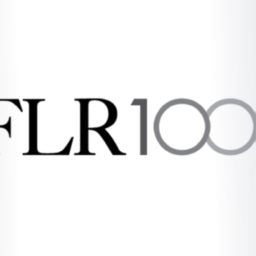The Ministry of Climate and Environment has submitted for legislative works a draft amendment to the Energy Law and certain other laws, the main object of which is to create a regulatory framework for the functioning of the hydrogen market in Poland.
These changes will establish the rules for functioning of the hydrogen market at least until the implementation of analogous provisions of European Union law, give impetus to the development of this market in accordance with the Polish hydrogen and fulfil one of the milestones of the National Plan for Recovery and Resilience (Pl. Krajowy Plan Odbudowy i Zwiększenia Odporności) regarding the improvement of conditions for the development of hydrogen technologies and other decarbonised gases (reform B.2.1). The above-mentioned Polish strategy assumes, i.a. achieving the production of approx. 200,000 tonnes of low-carbon hydrogen per year by 2030 and the widespread use of low- and zero-carbon hydrogen in many sectors of the economy (energy, heating, transport, industry).
The key changes foreseen in the draft amendment include:
- introduction in the Energy Law of defined legalterms necessary for the development and operation of the hydrogen market in Poland, including:
a) extending the fuel catalogue to include hydrogen (hydrogen will be a fuel type besides those so-far included in such definition: solid, liquid and gaseous fuels),
b) defining particular types of hydrogen (low carbon, electrolytic and renewable),
c) the introduction of new operators for hydrogen activities: hydrogen system operator (HSO), hydrogen combined system operator (HCSO) and hydrogen storage system operator (HSSO),
d) defining and regulating new activities – storage of energy as hydrogen and transmission of hydrogen via hydrogen networks,
e) defining electrolytic conversion service – HSO, HSSO, gas transmission system operator (TSOg) and gas distribution system operator (DSOg) will be obliged to provide the service to energy companies; - regulation of hydrogen activities, including their licensing;
- definition of new types of agreements: transmission and storage of hydrogen services (Pl. umowa świadczenia usług przesyłania i magazynowania wodoru) and hydrogen connection agreement (Pl. umowa o przyłączenie do sieci wodorowej);
- empowering the minister in charge of energy to define, by way of a regulation, detailed conditions for the functioning of the hydrogen system.
The draft allows TSOg and DSOg to play the role of HSOs, due to the possibility of transmission of hydrogen through gas networks. The issues of so-called unbundling and third party access are explained in the table below..
|
SELECTED ISSUES |
RELATION TO THE GAS AND HYDROGEN MARKET |
|
UNBUNDLING |
|
|
THIRD PARTY ACCESS |
|
Comparison of obligations to obtain a licence for particular gas and hydrogen market activities
| ACTIVITY | GAS MARKET |
HYDROGEN MARKET |
|
GENERATING |
|
|
|
TRANSMISSION AND DISTRIBUTION |
|
|
| STORAGE |
|
|
|
TRADE |
|
|
Conducting hydrogen activity without the required licence
An entity which, on the day of entry into force of the amendment, will be conducting economic activity in the field of hydrogen storage, transmission, trade and supply via direct hydrogen pipelines – which under the amendment requires a licence – will be required to obtain a licence within 12 months from the date of entry into force of the amendment. The licence will be issued by the President of the Energy Regulatory Office (Pl. Prezes Urzędu Regulacji Energetyki), and until the licence is issued, the entity applying for the licence will be able to conduct the above- mentioned activity under the existing rules.
Conducting economic activity in the field of hydrogen storage, transmission, trading or supplying hydrogen through direct hydrogen pipelines without a required licence will be punishable by a fine of up to 5 000 000 PLN or imprisonment of between 6 months and 5 years.
Entry into force of the amendments
The draft amendment is at an early legislative stage. According to the current draft, the changes are to enter into force 3 months after the date of publication in the Journal of Laws of the Republic of Poland.









